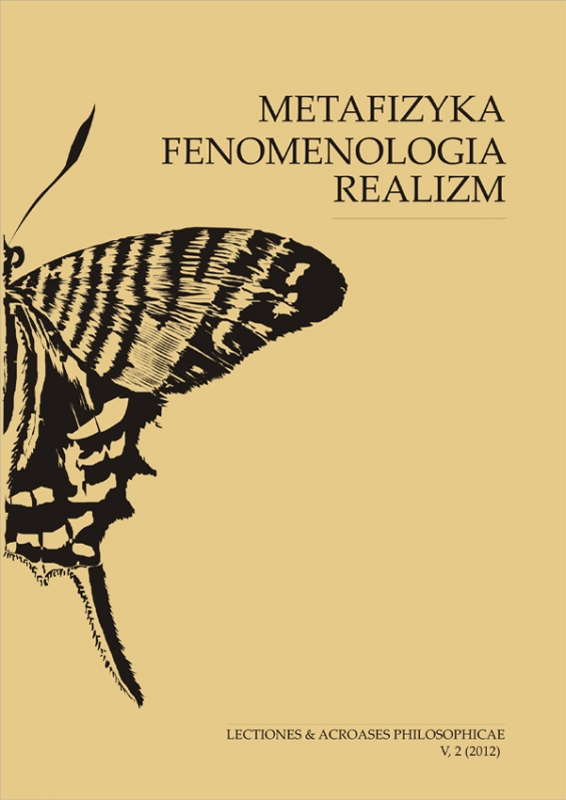Roman Ingarden a metafizyka
Abstrakt
<p style="text-align: justify;"><strong>Roman Ingarden and Metaphysics</strong><br /> <br />Roman Ingarden sees a human person as a power which builds itself up, exists and becomes free by its effort to realize goodness, beauty and truth. In an essay delivered 25 years ago, its author expressed doubt concerning the applicability of Ingarden's ontology to the realization of such an enterprise. In the first place, this is a very dynamic idea of a human person, while Ingarden's ontology, based on the Husserlian analysis of perception, is utterly static. Moreover, Ingarden lays great stress on the existence and importance of values, but is not able to find a place for them in his ontology. His speaking of some 'higher powers' which we sometimes experience, is a rather enigmatic or even euphemistic way of expressing the problem of God by a thinker who in such a strong way accepts the main tenets of the Judeo-Greek understanding of humanity, the very basis of the European culture. To realize goodness one needs to know the truth about it, to accept the intelligibility of the world in which we live. But for the Modernity God's existence is not guaranteed by the intelligibility of being any more but, vice versa, only God could guarantee the intelligibility of being. In this way, Ingarden's idea of a human person presupposes a metaphysics of truth and goodness and a metaphysics of God. Only such a metaphysics can be a sort of a map of the world in which we live, a map indispensable to the enterprise of moving in it in order to realize truth and goodness − the necessary condition, according to Ingarden, of the existence and development of a human person. To make this clear, the author compares the attitude to the problem of God of Friedrich Nietzsche and of Richard Rorty and argues that not the vague hopes of the postmodern thought, but only an effort of building up a <em>culture of love and charity </em>as understood by John Paul II may make the life on this earth better.</p>Opublikowane
21-05-2013
Numer
Dział
Artykuły [1043]

